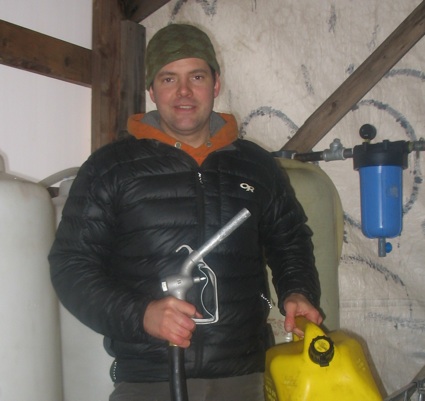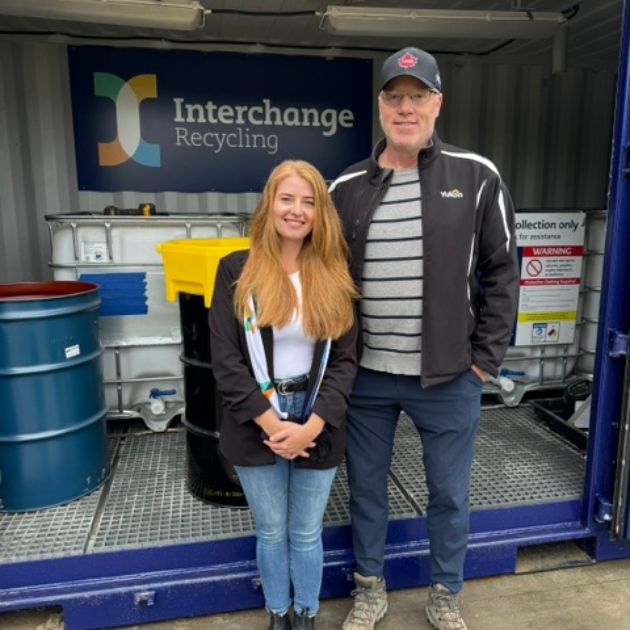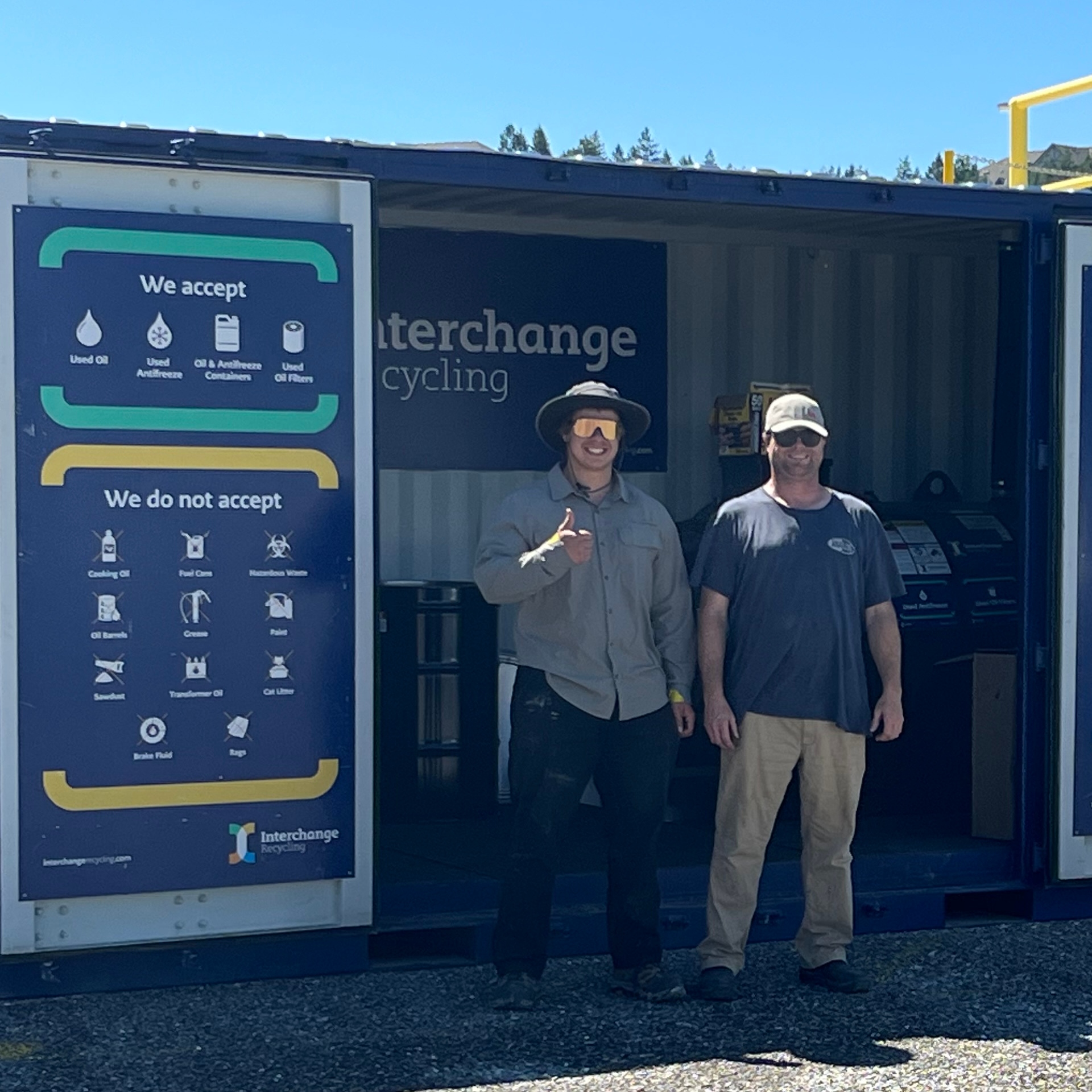One man’s fryer oil is another man’s fuel
Paul Kelly, the owner of Cedar Creek Cafe in Winlaw, is using waste vegetable oil to fuel his vehicles

Paul Kelly utilizes a would-be waste product to power his delivery vehicle. —
Photo courtesy Paul Kelly
Here is a question for restaurant owners: what do you do with the vegetable oil in your fryers when it's ready to be replaced?
It could be composted, fed to livestock or simply destined for a landfill. But there is still life left in that oil—enough life to power a vehicle.
"People have to drive, and the chances of them getting a fuel cell car in the next five years are pretty slim," said Paul Kelly, the owner of Cedar Creek Cafe in Winlaw. "(Vegetable oil fuel) is a good solution until we come around with more sustainable technology in terms of the energy side."
Kelly would know—he and his wife, Clare, power the cafe's delivery truck on waste fryer oil collected from 80 restaurants around the West Kootenay. Kelly first learned about vegetable oil fuel while operating a health food store in Calgary. When his family grew to include two children, transportation via a bicycle was no longer sufficient. So he purchased an old Mercedes and sourced the parts for a waste vegetable oil system from Salmon Arm, B.C., and modified the car in his garage. When the family purchased Cedar Creek Cafe and moved to Winlaw, they upgraded the vehicle to a 2004 Dodge Ram, also modified to run on vegetable oil.
The vegetable oil system requires the vehicle to be started and stopped using biodiesel, so Kelly developed a relationship with a local biodiesel merchant. When the fuel business was put on the market, Kelly purchased it, acquiring the multiple tanks for refining, dewatering and storing biodiesel. He and Clare are in the process of upping their output, and Kelly said that he's been receiving numerous calls from people interested in this eco-friendly method.
"I think it’s important to note that fuel produced from a waste product is hugely more sustainable than virgin agricultural biodiesel," said Kelly. "Virgin agricultural biodiesel produces a lot of carbon emissions just to get the oil to start the process. We run all of our oil collection trucks and the entire biodiesel refinery on waste vegetable oil, so there’s no fossil fuels being consumed in the process. It’s probably the lowest carbon footprint fuel being produced in Canada today because of that."





Comments